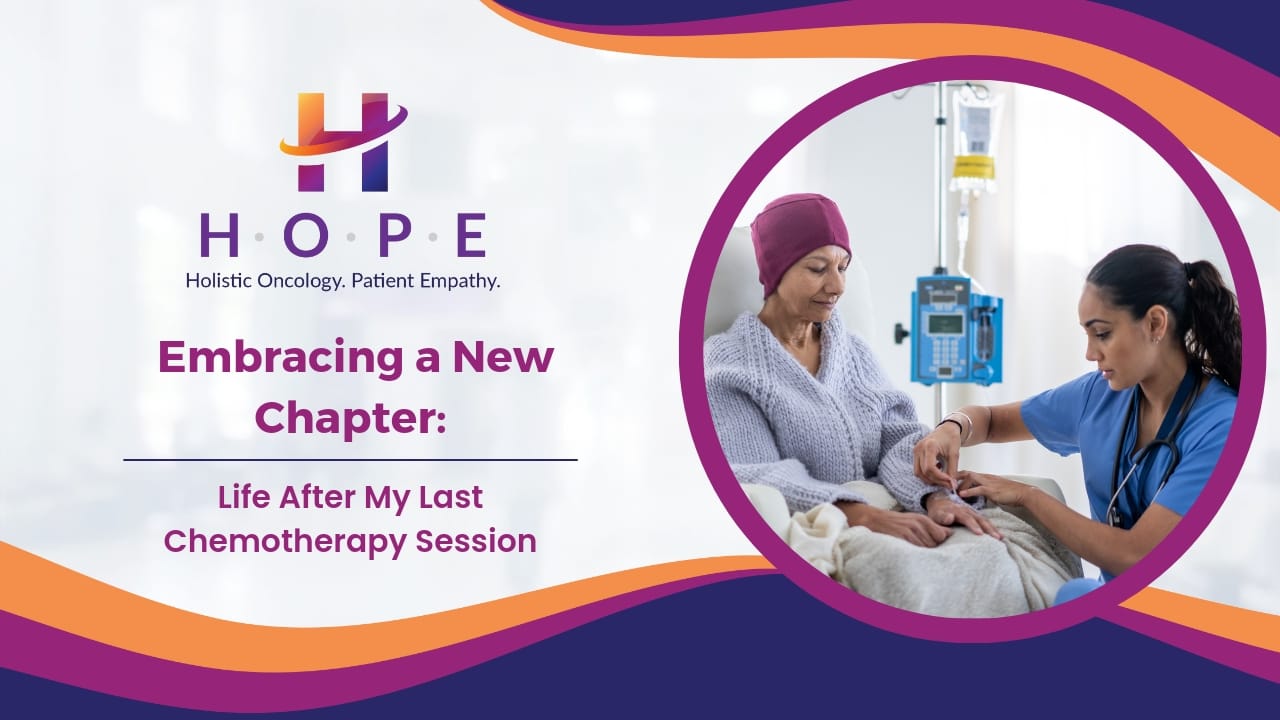Introduction:
Completing the last chemotherapy session is a significant milestone in the challenging journey of cancer treatment. The end of this arduous phase marks the beginning of a new chapter filled with hope, recovery, and the prospect of returning to a more normal life. In this article, we’ll explore the multifaceted aspects of life after the last chemotherapy session, including physical recovery, emotional well-being, and the adjustments needed to embrace a renewed sense of normalcy.
Physical Recovery:
- Easing into Normal Activities: After the last chemotherapy session, the body needs time to recover from the intense treatment. Patients are advised to gradually reintroduce themselves to regular activities, starting with light exercises and slowly increasing the intensity. This helps rebuild strength and stamina.
- Follow-up Medical Care: Although chemotherapy is completed, regular follow-up appointments with the oncologist are crucial. These appointments allow healthcare professionals to monitor the individual’s health, address any lingering side effects, and detect any potential signs of cancer recurrence early on.
- Nutritional Rehabilitation: Chemotherapy can have a profound impact on appetite and nutritional intake. Post-treatment, focusing on a balanced and nutrient-rich diet is essential for rebuilding the body’s strength. Nutritional counseling and supplements may be recommended to address specific dietary needs.
- Managing Lingering Side Effects: Some side effects may persist after the last chemotherapy session, such as fatigue, neuropathy, or changes in taste and smell. Patients should communicate openly with their healthcare team about these issues to explore potential solutions or coping strategies.
Emotional Well-being:
- Coping with Emotions: The end of chemotherapy brings about a mix of emotions, including relief, gratitude, and sometimes anxiety about the future. It’s essential to acknowledge and address these emotions, and many individuals find therapy or support groups helpful in navigating this emotional landscape.
- Fear of Recurrence: Fear of cancer recurrence is a common concern for survivors. Regular follow-up appointments and open communication with healthcare providers can provide reassurance. Adopting a positive mindset and focusing on the present moment can also be beneficial in managing anxiety about the future.
- Rebuilding Confidence and Self-Esteem: Physical changes, such as hair loss or changes in body weight, may impact self-esteem. Engaging in activities that boost self-confidence, such as exercise, hobbies, or social interactions, can aid in rebuilding a positive self-image.
- Support Systems: Establishing and maintaining a robust support system is crucial after completing chemotherapy. Friends, family, and support groups can provide emotional support and understanding during the post-treatment period. Connecting with others who have gone through similar experiences can be particularly beneficial.
Adjusting to a New Normal:
- Setting Realistic Expectations: Life after chemotherapy may not immediately return to the pre-diagnosis “normal.” It’s important to set realistic expectations and recognize that the healing process takes time. Patience and self-compassion are key elements in navigating this transition.
- Career and Work Adjustments: Returning to work may require adjustments, such as a phased return or modified responsibilities. Open communication with employers and colleagues can facilitate a smoother transition back to the workplace.
- Rebuilding Relationships: The impact of cancer treatment extends beyond the individual to their relationships. Rebuilding connections with loved ones, addressing any strains that may have arisen during treatment, and fostering a supportive environment are vital aspects of life after chemotherapy.
- Embracing Life Changes: Some individuals find that surviving cancer prompts a reevaluation of priorities and values. This might lead to lifestyle changes, such as pursuing new passions, redefining career goals, or strengthening connections with loved ones.
Conclusion:
Life after the last chemotherapy session is a complex and transformative journey. It involves physical recovery, emotional healing, and the adaptation to a “new normal.” As survivors navigate this path, they often find strength in resilience, the support of loved ones, and a renewed appreciation for life’s precious moments. By embracing the challenges and opportunities that come with life after chemotherapy, individuals can move forward with courage, hope, and a sense of empowerment, ready to shape a future filled with newfound purpose and joy.






